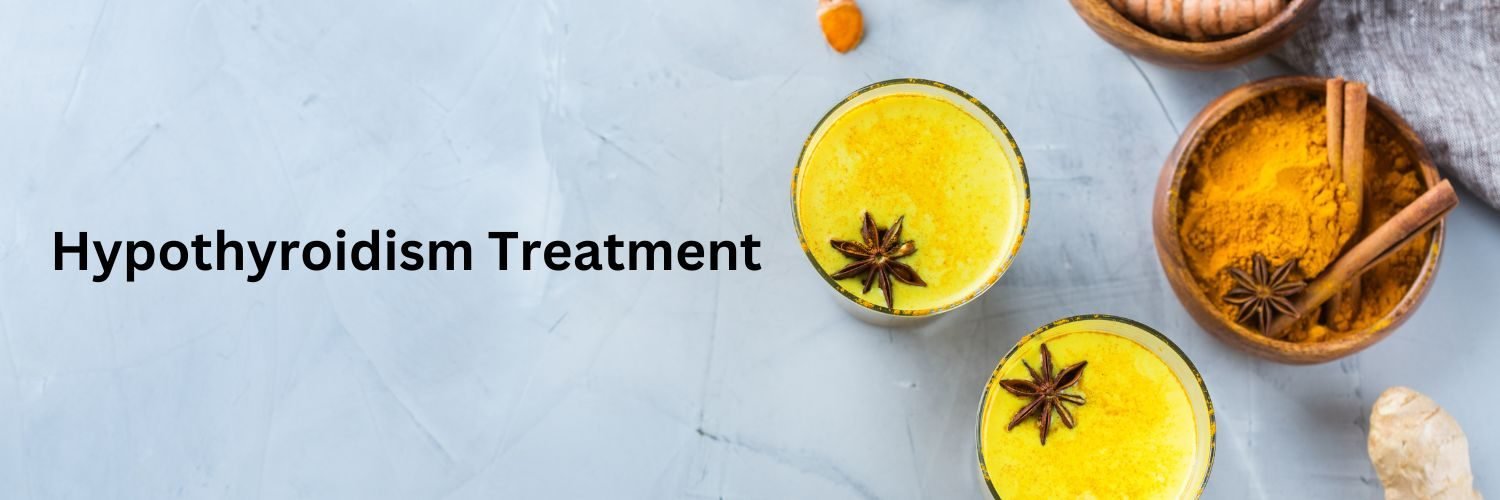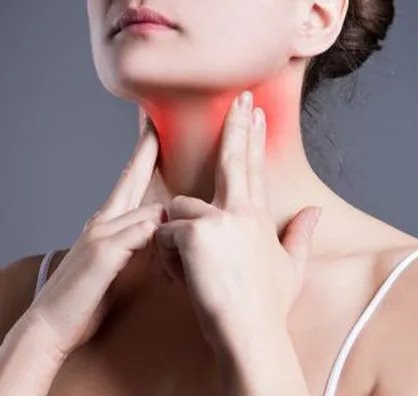
Hypothyroidism Treatment in Ayurveda
Hypothyroidism is a clinical syndrome resulting from deficiency of thyroid hormone including hypothalamic or pituitary disease, generalized tissue resistance to thyroid hormone and disorders that affect the thyroid gland directly..This condition affects the metabolism of the whole body up to the cellular level so, the multi-system involvement occurs as well as the mental status of the patient is also disturbed. Lifelong treatment with modern drugs (levothyroxine) does solve some of the issues, but does not cover the entire spectrum of disease. Hypothalamo-Pituitary-Thyroid axis with its negative feed back mechanism helps in maintaining normal hormone levels of thyroid gland. The synthesis and transport of thyroid hormones play a vital role in the normal physiology and functioning of our body.
While analysing the signs and symptoms of hypothyroidism in Ayurvedic view, we note the involvement of all Srotas. The Kapha dosha and Vata dosha vruddhi is elicited and Pitta dosha kshaya is seen. Though some physicians consider it as a Sthanika vyadhi under Galaganda roga, it’s Dushti lakshanas are seen in whole body. If we try to have a keen insight to the pathogenesis of hypothyroidism according to the principles of Ayurveda, we find that it is basically caused due to dysfunctioning of the Agni. Hypofunctioning of Jatharagni, which in turn, affects Dhatvagni, eventually, brings out pathological sequence & ultimately, the diseased condition developed. Symptoms of Hypothyroidism-The symptoms of hypothyroidism are so nonspecific in nature and they mimic many symptoms of other diseases. So it often remains undiagnosed or misdiagnosed. Weight gain, mood disturbances, fatigue, tiredness,
sleeplessness,lethargy, slow memory, intellect and thought, menstrual irregularities, cold intolerance, dry rough skin, thin brittle hair, hair loss, muscle stiffness, aching, cramps, weakness and fatigue, constipation, hoarseness of voice, goiter etc.The symptoms are so
diversified because of the action of thyroid hormones on many vital functions of our body.
Functions of Thyroid Hormones
Growth & development
Metabolism- stimulates metabolism
Oxygen consumption & heat production
Regulates nervous system
Maintains normal cardiac activity
Regulates skeletal muscle function
Maintains Lung volume and breathing capacity
Normal cutaneous circulation & secretion of glands,
Helps in controlling normal bowel movements
Increases utilization & clearance of vitamins, carbohydrate, fat and protein metabolism ,action on sleep,
Helps in normal sexual development & reproductive function.
Ayurvedic View Of Hypothyroidism
The analysis of symptoms of hypothyroidism helps us to identify it as Kapha Pradhana tridosha Vyadhi with Rasa and Medo dhatu dushti predominantly. According to the ayurvedic principles, pathogenesis of hypothyroidism is caused due to dysfunction of Agni. Hypofunctioning of Jatharagni, which in turn, affects Dhatvagni, eventually, brings out pathological sequence & ultimately, the diseased condition develops. Kapha -Vata Dosha Vriddhi and Pitta Kshaya results due to Agnimandya. Dhatwagnimandya especially Rasa and Medo Dhatwagni Mandhya contributes to this condition.
There is no direct mention of thyroid gland in ayurveda. But a disease by the name Galaganda is mentioned in samhitas. The earliest description of neck swelling is found in atharva veda by the name Apachi. Charaka first described about the disease under the 20
varieties of kapha vikaras.Most of the causes mentioned in Apachi and Galgand are kapha aggravating.
Ayurvedic Treatment Of Hypothyroidism
The objective of treatment should be to address the problem at its root by regulating the thyroid function and decreasing inflammation.
Srotoshodhana (cleansing of the macro and microchannels), Agnideepana (stimulation of the digestion and metabolism), Pachana (digestion) and Vatanulomana (proper regulation of excretory system) are the main principles of treatment.
If the condition is chronic, treatment usually starts with Vaman followed by vasti treatment. Ayurvedic medicines are given according to the condition of patient with significant results in symptoms and test reports of thyroid hormones. In females, Hypothyroidism is often associated with PCOD, Infertility etc. which has to be treated together. Patient need not to take the medicine for whole life. Treatment usually lasts for 6 months to one year.
For the best Ayurvedic treatment of Hypothyroidism – Dr. Mukesh Kumawat Ayurvedic Gynaecologist at Shri Nirvikar Ayurved and Panchkarma, Khatoo has an experience of more than 8 years in treating hypothyroid patients.

